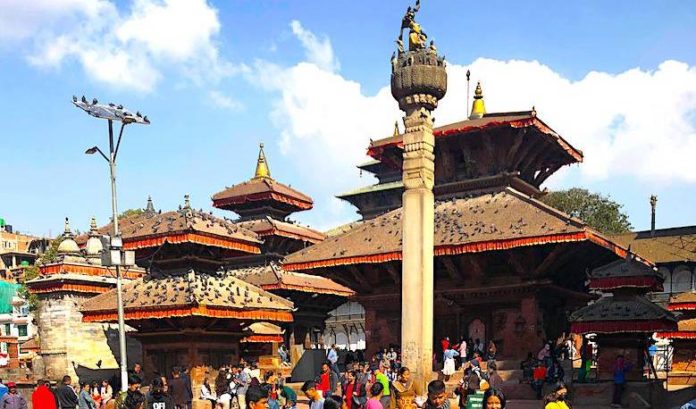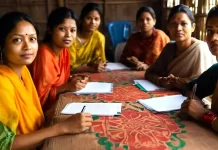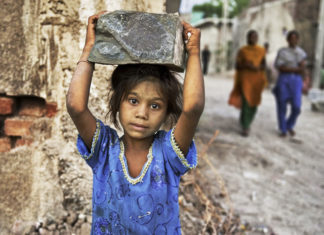 By Achyut Gautam
By Achyut Gautam
Nepal has been under some form of lockdown ever since a nationwide lockdown was imposed on March 24. Recently, the lockdown has been relaxed, but hasn’t been lifted altogether. Restrictions are still in place in certain areas. For instance, schools and colleges still remain closed in the entire country. As for the situation after the relaxation, the people were expected to adapt to the new normal, such as adhering to physical distancing and crowd avoidance. However, it appears that the people instead preferred sticking with the old normal, and, as a result, lately the number of daily COVID-19 infections has increased substantially.
Naturally, COVID-19 has hit Nepal hard as the country was placed under a strict lockdown for over 5 months. Since the lockdown has been relaxed, the country is trying to cope up with an economy that has been badly thrashed because of the pandemic. Nepal had challenges on so many levels during the nationwide lockdown. Hundreds of thousands of citizens who were working on the other side of the border in India returned to the country which led to chaos in the border areas. Many Nepali citizens were stuck at the southern border after Nepal closed its open borders to prevent the spread of coronavirus. Nepal’s Prime Minister went on to blame India for the rise in the coronavirus cases.
On the other hand, the daily wagers in the country found themselves out of work, especially in the capital city Kathmandu, which is also the economic capital of Nepal. After they were jobless or laid off due to the pandemic, the daily wagers were compelled to leave Kathmandu to their hometowns and villages. With all the transportation services closed, many people were on the roads, some being able to reach their respective homes and some being left out on the roads without any help and support. In addition, the streets of Kathmandu encountered curfew, and the people who lived on the streets, those who were dependent on the kindness of the passersby, experienced a tough time.
Pandemic still proliferates in the Himalayan nation but many speculations go wrong
Despite the speculations that remittance would drastically come down because of COVID-19, cash flow from outside the country has not slowed down.
Remittance is a major source of income for Nepal as a staggering number of Nepalese work in foreign countries. So, there had been speculations that the remittance would drastically come down because of the coronavirus situation globally. Despite the speculations, cash flow from outside the country has not slowed down, which is a positive sign for the country.
For this article, I interviewed Ram (name changed as per his request), a freelancer, former media person, and a communication practitioner, who has a close eye on the Nepalese economy.
“Since the foreign employment sector contributes a handsome 30 percent of Nepal’s GDP and remittance is continuously on the rise, I do not see any big impact on the economy,” Ram explained. “Moreover, Nepal’s economy is not as advanced and neither integrated with the world, so the country should remain relatively safe to a possible global slowdown.”
In Ram’s opinion, the informal economy and the agriculture sector dominating the economic activity in the country, Nepal would not face huge financial backlashes merely because of a pandemic situation. Although, as a poor country, many Nepalis already suffer from poverty, regardless of COVID-19.
Whereas on the social front, Ram thinks Nepal is doing very well.
“COVID-19 should not force any major change given the happy-go-lucky nature of the Nepalese people,” he said. “The country and its countrymen have always recovered surprisingly well after major catastrophes, be it the 2015 earthquake or the India-imposed blockade, or floods in various parts of the country every year”.
Ram’s remarks, however, contradict the mental health concern that is on the rise because of the pandemic situation in Nepal. The World health organization (WHO) has also warned about the possibility of the rise in mental health issues to a greater extent because of the pandemic.
These unprecedented times with lockdowns, layoffs, social distancing, and isolation can be overwhelmingly uneasy for many individuals regardless of their culture, regional positioning, or their social fabric.
Most affected people and the role of the state/ NGOs/ and other stakeholders
Ram, as a social activist himself, appreciated, and praised individuals who helped the needy financially, socially, and morally. I asked him about the people who are at the receiving ends because of the pandemic and about the role of the governments (both federal and local) and other interest groups.
“The hardest-hit were the daily wagers, followed by salaried individuals who were either laid off or whose salaries were cut drastically. Then, businesses,” Ram explained. “Yes, the government announced support initially, but that was meager. I/NGOs and individuals also extended help, but that, needless to say, is never sufficient.”
He stressed the need for the government to provide more assistance to the affected citizens and health care professionals.
Way forward
Health authorities and organizations should organize mental health camps and encourage people to talk, debate, and share experiences.
As the problems caused by the pandemic are so many, it is very important to have empathy while dealing with people in whatsoever circumstances because they may not necessarily be in a relaxed frame of mind these days because of the pandemic. It is very evident that there is going to be a rise in unemployment numbers in Nepal, so investing one’s energy and time, for instance, in farming or agriculture might be an answer to the financial shakiness and uncertainties experienced in these times.
It is also important that Nepal’s central as well as provincial governments extend support, both financial and moral, to pandemic-affected Nepali citizens, especially to the foreign returnees, to capitalize on their skills and expertise which they have gained from overseas employment.
And, most importantly, the health authorities and social organizations should organize mental health camps and encourage people, especially the youth, to talk, debate, and share experiences regarding mental health issues. This can help possible victims to come forward and admit that they have problems and seek help.











